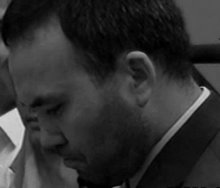Government says Canadian diplomats in Beijing and consular officials in Ottawa fumbled the ball
OTTAWA AND BEIJING — Angered by what he believes is lack of attention to a serious human-rights case, Prime Minister Stephen Harper is demanding an explanation for why no Canadian diplomat was present at the recent court appearance of a Canadian man accused of terrorist activities.
Both Canadian diplomats in Beijing and consular officials in Ottawa fumbled the ball last week when Huseyin Celil appeared in a Chinese court, a senior government official said Monday night in Ottawa.
The Department of Foreign Affairs “was supposed to have someone there. The Prime Minister is personally displeased that Canada did not have a representative apparently even trying to be at the trial,” the official said.
Mr. Harper is insisting that Canadian diplomats in China attend future court proceedings in Mr. Celil's trial, which opened Friday in the provincial city of Urumqi.
Canadian diplomats say they have been frustrated by the fact that the Chinese government will not recognize Mr. Celil's Canadian citizenship.
But even if Chinese authorities refuse to allow a Canadian diplomat into the courtroom, a representative should have been present for the opening of the trial as a signal of how seriously the Harper government is taking the case, the official said.
“Somebody in the department didn't understand how important this case is to the government,” another senior official said. “This case isn't going away.”
The two officials are well placed to understand Mr. Harper's concerns, but were not authorized as spokesmen.
Mr. Harper and other Conservative government ministers have raised the Celil case with the Chinese government personally several times. Trade Minister David Emerson raised it when he was in China last week.
Mr. Celil is a former imam at a mosque in Hamilton, who has been jailed at an unknown location in China for almost eight months.
When he appeared in court Friday in Urumqi, nobody from the Canadian embassy was present, according to Mr. Celil's family members.
“The Canadian embassy should have been able to attend the court proceeding,” said Charles Burton, a political scientist at Brock University and a former Canadian diplomat at the embassy in Beijing.
“It was not a closed proceeding, because Mr. Celil's family and friends attended. So I think our diplomats should have gone to the court in Urumqi that day and joined the Celil family in the courtroom. I assume that our embassy is in frequent contact with Mr. Celil's relatives, so surely they would have been informed that Mr. Celil would be appearing in court on Friday.”
Mr. Celil's wife, Kamila, heard details of the court hearing from relatives in China who attended.
“The Canadian government didn't send representation,” she told The Globe and Mail from Toronto on Sunday. “They were supposed to. They were supposed to send somebody from the Canadian embassy.”
Chinese authorities have refused to accept that Mr. Celil is a Canadian citizen. Since he was born and raised in China, they have insisted that he is a Chinese citizen. But this should not have prevented Canada from sending diplomats to attend the court hearing on Friday, Prof. Burton said.
“The embassy should have been in frequent contact with the Celil family to ensure that they would be informed if there were any developments in Mr. Celil's case,” he said.
“The embassy's non-presence in Urumqi at the time of the hearing is likely an indication that they were not sufficiently focused on this. ... Even if our diplomats were going to be refused entry at the courtroom door, we should have tried to get in and then waited there to be debriefed by the people who were allowed in.”
A spokeswoman for the Canadian embassy in Beijing said it is “in constant touch” with the Chinese authorities about the case.
The Uyghur Canadian Association, which talked to Mr. Celil's relatives in China, said the court hearing did not present any evidence against him and did not give any clue about the charges.
Prof. Burton said Canadian diplomats might be making a “strategic error” by relying too much on their traditional contacts with the Chinese Foreign Ministry, which is a relatively weak player in the Chinese system and actually has little influence on Mr. Celil's fate.
He said the embassy should be focusing instead on China's security and military agencies, which probably control Mr. Celil's case.




No comments:
Post a Comment